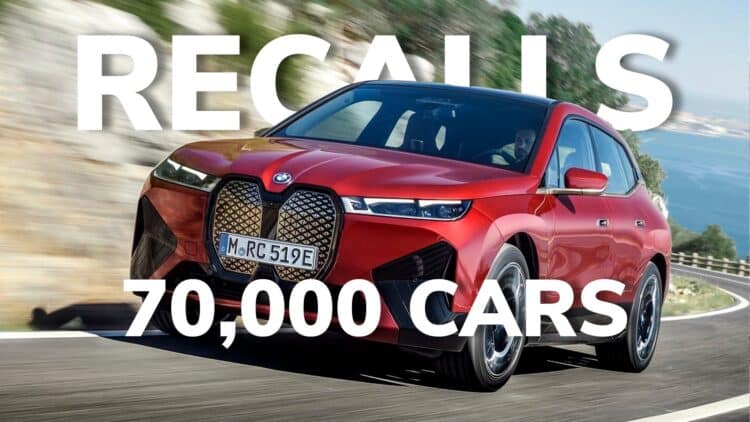BMW has been forced to recall over 70,000 cars from several models following a troubling report of a software issue that could potentially have disastrous consequences. The Bavarian automotive giant has been at the top of the industry for generations and boasts a reputation for producing reliable cars across its extensive lineup, which now extends into the EV market. Recalls are a common occurrence in modern-day automotive society; however, for a company with the stature and status that BMW holds, any recall is a worrying development.
The electrification of our cars has led to some unique and troubling recalls
Following the immense success that the EV has experienced, a few unique problems have arisen from beneath the surface that we imagine would not have been an issue for a company like BMW to deal with 20 or 30 years ago, yet here we are. Tesla rocketed the EV into the public’s attention with its futuristic technology and design, and other companies have emerged from that success to solely build EVs.
Once the major car manufacturers of the industry noticed the embrace that the EV found globally, they quickly invested resources into their EVs for the public to consider. The testing standards and procedures that the automotive sector pioneers are legendary; however, problems will find a way to emerge from unlikely sources despite the foresight of some of the world’s best engineers at companies like BMW.
BMW has made some serious inroads into the electric vehicle market
BMW took the plunge into the electric vehicle sector in 2011 following the immense success of the Tesla EVs. Their first fully electric car was released in 2013, and BMW has since continued to produce EVs at a competitive rate. Their hybrid sports car, the i8, was a huge success and displayed BMW’s commitment to designing EVs we can buy as opposed to concept cars that may never be produced.
What has caused this recall for BMW, and is my car affected?
BMW has seen its EV department grow year on year and has developed some of the best EVs on the market. No doubt due to its iconic manufacturing quality and very German way of doing things; when a recall is issued, it’s taken rather seriously. Following a growing number of complaints from the South Korean market, BMW decided to conduct safety recalls in all markets, and they found a problem with their electric lineup.
The recall comes after BMW discovered that due to incorrectly coded electric drive motor software, the high-voltage system may shut down, leading to a sudden loss of drive power. The recall affects several models in their EV lineup, of which several are built at the BMW Group Plant Spartanburg in South Carolina. BMW is always exploring the limits of its designs. The affected models in this recall include:
- 2022-2024 i4
- 2025 i4 eDrive35
- 2025 i4 eDrive40
- 2022-2024 iX
- 2023-2024 i7
- 2024 i5
The recall is especially concerning since, according to reports, BMW has known about the issue since 2021. BMW has stated that affected customers will be notified by mail no later than August 5, 2025. Able customers can simply update the software themselves from the comfort of their i4s, i5s, i7s, and iXs when the required update package becomes available.
How will this recall affect BMW’s sales in the global automotive market?
The problem is a serious one; however, the solution is as simple as downloading and installing an update, something that we all have become frustratingly familiar with in recent years. As the engine evolves in size and emissions, new versions of the electric motor and traditional combustion engines have emerged from the world’s biggest car makers. BMW has an unparalleled reputation in the automotive industry, and this recall can be seen as proactive instead of reactive for the German giant, as they took action before too many models were affected.
For more information about this recall, check the 25V-395 recall from the National Highway Traffic Safety Administration.


